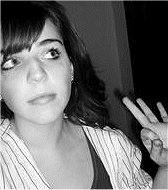In The Adventures of Huckleberry Finn, we've seen that both professional education and life experience are valuable when it comes to using them in everyday life. While both may serve their purposes in one situation or another, which is truly more beneficial to posesses - the degree, or the experience? The slave Heck travels with, Jim, is the advocate for life experience. Because Huck has lived with the widow and knows how to read, in the beginning of their journey he is practically symbolic for "book-learning".
Professional education is greatly valued in this time and age - without a college degree, high-paying jobs not in the trade are very hard to find. However, high school is still seen as a time to do your best as to get into college. If you'd like to get into a competitive school, it is reccomended you take honors classes. However, the freedom to choose whether you'd like to take regular-paced, more advanced or slower classes has been in jeopardy for several years. The mainstreaming act was originally brought about in the seventies by the Education for All Handicapped Children Act, which vouched to keep mentally handicapped children in public schools. However, soon several people began to think it would be a good idea to put mentally handicapped children as well as giften children in the same classes, so those handicapped children would be influenced bythe gifted children as well as the well-behaved ones. While it is statistically proven that children who are mentally handicapped or have learning disorders do are capable of doing better in such environments, the negative pitfalls in the idea would and do cause several repercussions. Gifted children can't learn as quickly as they would like to. Also, a general education teacher cannot provide special needs students with the attention they need while tending to the rest of the class and letting their brighter pupils advance as they would like to.
Education today, while important, has become very trivial and often moves away from its intentions. Life experience to a mentally handicapped and even a person of average intelligence can prove to be much more beneficial when not [and even when!] looking at college-based careers.
Friday, August 10, 2007
Saturday, August 4, 2007
Life Experiences versus Book Learning
When we begin in The Adventures of Huckleberry Finn, Huck, a boy who may as well be an orphan, is living with a widow who has taken him in. The widow is attempting to instill some "book learning" in the unorthodox and ruly boy. Huck is basically uneducated in both forms, but he has been exposed to basic book learning for the better part of his life. However, when he escapes down the Mississippi with a slave named Jim, he is forced to learn with real life experience that he could look back on later. Book learning, however, was highly admired by the community in the time period and place in which they lived.
Once Huck escapes, he begins picking up real-life experience that saves his life. He and Jim find themselves in several places with different people, including the so-called exiled duke and Dauphin, and they both learn things they never could have learned by simply reading a book. Jim teaches him the life lessons he could never have learned by staying with the widow.
However, book learning does have its place in Huckleberry Finn. Book learning teaches Huck to read, a valuable skill which he uses later in the book as well. Twain obviously prefers life learning while portraying Huck and Jim's adventures, but he doesn't seem to completely oppose book learning. Through these experiences Huck has with Jim on his journey to freedom, Mark Twain shows that he prefers gaining lift experience to reading out of books.
Once Huck escapes, he begins picking up real-life experience that saves his life. He and Jim find themselves in several places with different people, including the so-called exiled duke and Dauphin, and they both learn things they never could have learned by simply reading a book. Jim teaches him the life lessons he could never have learned by staying with the widow.
However, book learning does have its place in Huckleberry Finn. Book learning teaches Huck to read, a valuable skill which he uses later in the book as well. Twain obviously prefers life learning while portraying Huck and Jim's adventures, but he doesn't seem to completely oppose book learning. Through these experiences Huck has with Jim on his journey to freedom, Mark Twain shows that he prefers gaining lift experience to reading out of books.
Subscribe to:
Posts (Atom)
